This tutorial explains how to install the open-source content management system (CMS) Drupal. You can use Drupal to create your own website.
This is a 3rd party application. We do not provide Drupal technical support, and we cannot guarantee that it will work properly. For Drupal support, please see https://www.drupal.org/support
Example terminology
- Username:
drupalee - Hostname:
<wwwXXX> - Domain:
<example.com> - Subdomain:
<drupal.example.com>
Install Drupal
Step 1 - Download Drupal
You can download Drupal via an SSH connection or via an FTP connection. You can find your access details on konsoleH when you go to Access Details→Login data ».
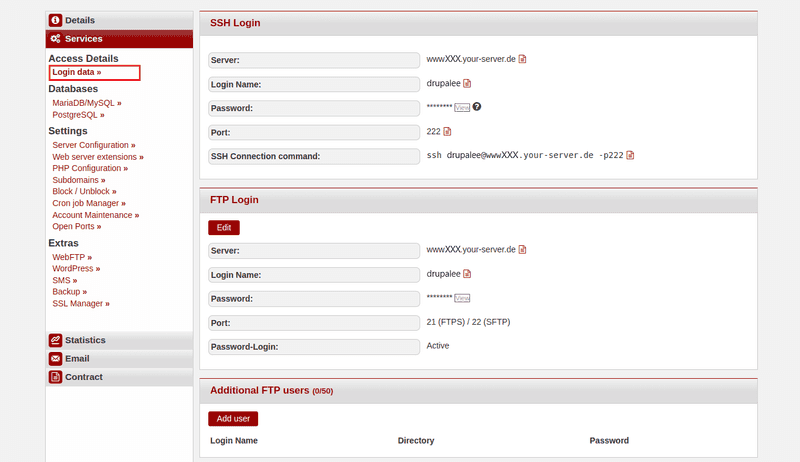
-
Option 1 - Via an SSH connection
For this option, you need Web Hosting Level 9 or higher.-
Download the file
After you establish an SSH connection to your server, you can download the file directly into thepublic_htmldirectory.drupalee@<wwwXXX>:~/public-html$ wget https://www.drupal.org/download-latest/tar.gz -
Unzip the file
Once thetar.gzfile is downloaded, you can unzip it.drupalee@<wwwXXX>:~/public_html$ tar -xf tar.gzThe
public_htmldirectory should now include thedrupal-10.1.4directory. -
Move the files
You can now move all the files within thedrupal-10.1.4directory to thepublic_htmldirectory.drupalee@<wwwXXX>:~/public_html$ cd drupal-10.1.4 drupalee@<wwwXXX>:~/public_html/drupal-10.1.4$ mv * ..The
drupal-10.1.4directory should now be empty. The missing files should now be in thepublic_htmldirectory.
-
-
Option 2 - Via an FTP connection
-
Download the file on your local device
Open https://www.drupal.org/download-latest/tar.gz to download the latest version. -
Unzip the file
- On your local device, open the "Downloads" directory. There, you should see the Drupal ZIP file.
- Right-click on the Drupal file.
- In the menu that opens, select "Extract Here" (Linux) or "Extract All..." (Windows).
-
Upload the unzipped files via FTP
You now need to copy the files on the server via FTP. Thedrupal-10.1.4directory should be in the "Downloads" directory. Select all the files within thedrupal-10.1.4directory on your local device and copy them to thepublic_htmldirectory on the server.
-
Step 2 - Edit the PHP settings
- Open konsoleH in a second window.
- Go to
Settings→PHP Configuration ». - Scroll down to "PHP settings" and set the value of
memory_limitto "256M".
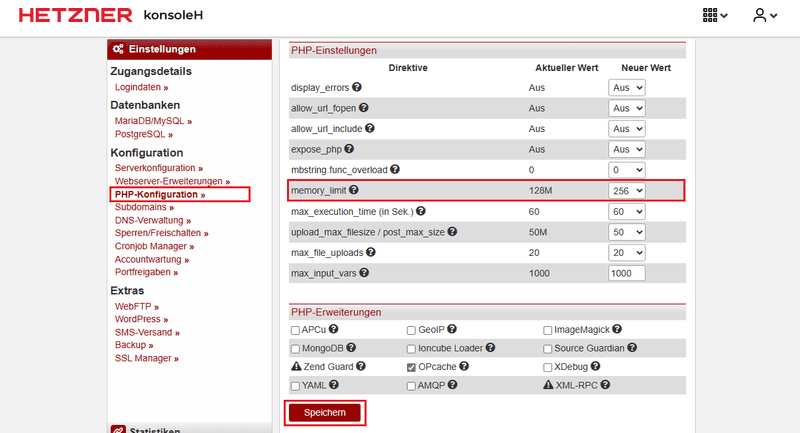
Step 3 - Install Drupal
Enter your domain name (e.g. drupal.example.com) in a web browser. This should take you to the Drupal installation wizard.
-
Select a language and click on
Save and continue.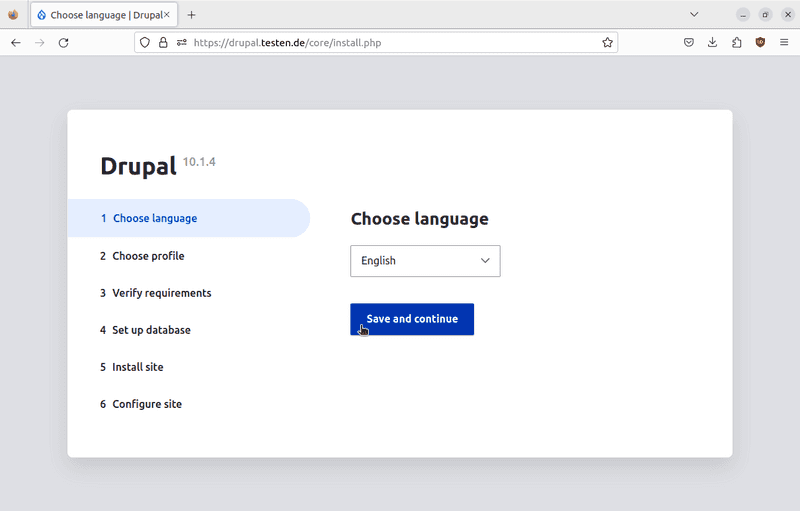
-
Select an option and click on
Save and continue.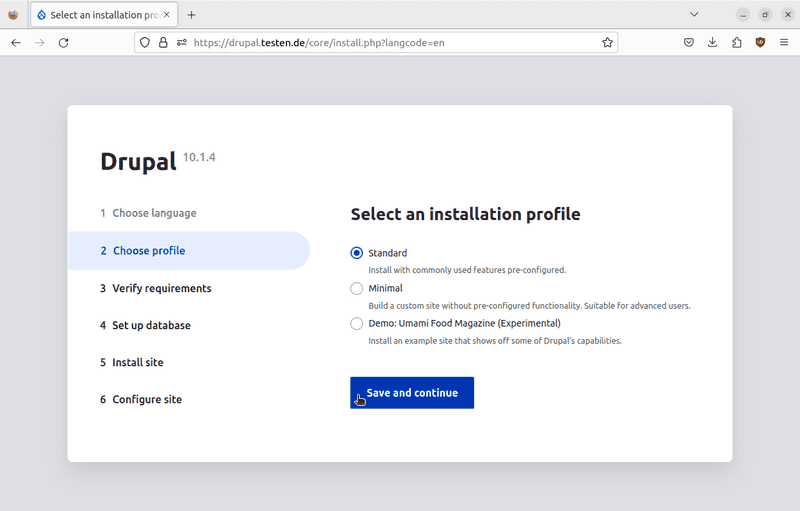
-
Check the status details and click on
continue anyway. -
When you add the information about your database, remember to set "Advanced options" too.
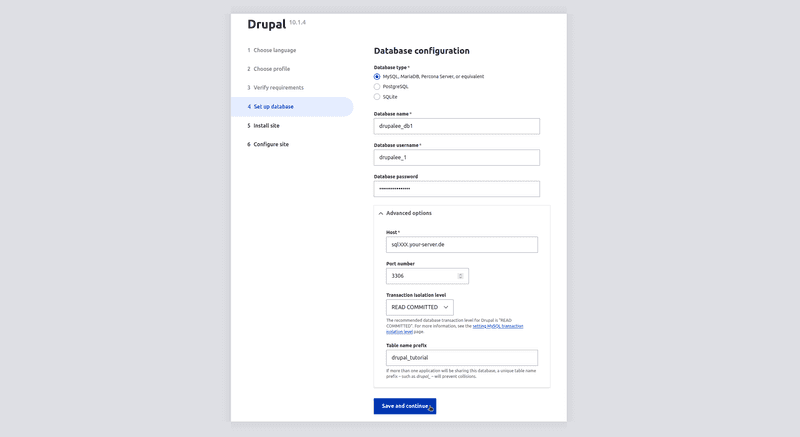
-
Wait for the installation to finish. After that, enter some information about your website, including the name of the website, an email address and a user. When you're done, click on
Save and continueto complete the installation.
Further steps
If everything works as expected, you can now create your own website! You can add articles at https://drupal.example.com/node/add, and you can view your articles at https://drupal.example.com.